Alberta
Why The Liberal’s Real Estate Economy Could Push Alberta Out of Canada

The real estate maxim goes something like, “Don’t buy the best house on a bad street.” For Albertans smarting from the recent election, that sentiment is starting to gain momentum. Seeing themselves as the credit card for Carney Canada, 47 percent of Albertans recently polled by Leger say they’d consider ending the ties that bind to Eastern Canada.
There are many emotional arguments for the surge from 27 percent pre-election to the current number— starting with unending equalization payments to ungrateful relatives in Quebec and Ontario. Most pertinent to those dismayed by the East’s infatuation with Mike Myers and hockey sweaters is the unsustainable Trudeau Easy Money economy, the real estate bubble that replaced conventional economy since 2015. (Trudeau’s decade left Canada with the lowest GDP in the western world and a $1.26T debt.)
There are now clear signs that the real-estate economy— in the form of condos— created by Trudeau’s post-modern philosophy is about to dive and take with it a good deal of wealth from Canadians and the financial industry. (RBC, the largest lender in Canada just reported $8.94 billion in loans that are unlikely to be paid back, up 13.5% from the first quarter.) And distancing themselves from an unrealized gains tax on principal residences might be a smart move for Alberta and whoever else wants to save their skin.

For the decade before Donald Trump called his bluff, Woke Canada bought Trudeau’s notion you could have wealth without work. The Trudeau notion of an economy was to de-industrialize Canada, resort to “clean” renewable power and live off the equity in Boomers’ homes. Oh, and use billions in tax dollars to push home prices higher for the past 10 years while importing four million new entitled folks.
As Trudeau’s advisor, Mark Carney subscribed to the idea that playing the real-estate game to fund a modern state, the way Albania once based its economy on a lottery. Municipal governments liked the idea of condo financing, because it returned maximum taxation from a small footprint—unlike the cumbersome factories and plants that left for the suburbs.
So they’ve doubled down on real estate while letting traditional industry go to the third world. @MikePMoffatt shows that government taxes and fees add up to $253K on a brand new $1.350M condo in Vancouver, or roughly 19 percent of the price. That $12,000 explains how taxes— and taxes-on-taxes— add over $250K to a Vancouver condo.
This tax hauls why municipalities are pitching hard on multiple-dwelling zoning as a cure-all. No wonder developers in Vancouver are still paying almost double the assessed value for land to build high density housing. In their haste to go big Vancouver realtors are now turning down borderline clients.
But this formula is falling apart. In Toronto, the average monthly rent is now about $2,250. For a condo costing $600K that means’ the investment is $1,800 under water. Little surprise that 20 percent of the city’s condo developments refuse to close. (What has happened to the missing 20 percent? Was it paid off or was it extended in some way?

The economy has seen this bubble coming and yet no one wants to end the party. And that is with tens of thousands of units still to come on stream. You hear stories in the condo/ construction industry in southern Ontario, the Lower Mainland of B.C. and Montreal where a typical builder sold 10 homes in past 12 months compared to the usual 40. Sellers are building exteriors but leaving inside unfinished just to keep crews working.
Some trades say they haven’t worked in a year as the glut suspends work. This is the cost for basing an economy on real-estate speculation. It’s why the Liberals played so hard for the Boomer vote in the election. Calm the aging by protecting the equity built up on their modest homes sitting on valuable property. Which punishes the younger voters who skewed CPC in the election.
While the population booms in Canada and condos sit empty, there remains a dire need for affordable housing in all the main urban markets— including Calgary and Edmonton. But real estate in Canada can’t function based on interest rates over three percent. There is huge political pressure from tax-hungry governments on the Bank of Canada to cut rates. This leads to expectations of 2.79% mortgage rates by the end of 2025.
Mortgage analyst Ron Butler @ronmortgageguy: “From the Feb 2022 peak the regions in Ontario that had the highest run up in 2021 have dropped 17% to 22%. And they will drop some more. We all have begun understand just how big a Catastrophe the 416 Dog Crate Condos have turned into”. (Those who remember the crash of 1980s-1990s have that t-shirt.)

Now replicate the same results across urban Canada. Thousands of owners walking away from underwater mortgages and poorly built homes. While the Big 6 banks can probably sustain writing off that much paper, the smaller funding industry is going to get hammered. Says Butler” “You can’t run 30-year lows in real estate transactions with a 50 percent higher population forever without pressure building from factors like Marriage Breakdown, Old Age & Employment change. But price recovery? More pain coming.
For those who bought the Liberals’ “Change!” Platform as a new economic plan based on frugality and efficiency, guess again. With Parliament prorogued the Carneyites have been ladling out billions of dollars both pre-and post-election to keep the economy from stagnating. Still, 1.4 million Canadians missed credit payments in the first three months of 2025, up 146K from this time last year.
Getting as far away from this economic collapse as possible might just be the biggest incentive for Albertans to run their own show in the future. Siphoning off energy profits to save Toronto and Ottawa from condo crates and phoney real estate developments is hardly a patriotic incentive. (To say nothing of getting away from the offshore money-laundering operations now thriving in Canada.)
Carney’s Throne speech that was supposed to woo the West was full of the usual Liberal bromides that sound good but are quickly swallowed by process and review. Then pipelines he promised in the campaign? Guess again. If he’d wanted to help Canadians he’d have adopted a tax structure like Ireland, Japan or Hong Kong that would eliminate 80 percent of CRA staff.
But he’s not dong that because the Ottawa region where those CRA people live is solid red. His election owed much to white-collar unions and media that polished his apple. The contradictions between Carney’s promises and reality will soon pile up. His Euro-based climate and social media policies will tell on a jaded public. His housing minister— who has promised to stabilize house prices— produced 170 percent jump in home prices while mayor of Vancouver.
Which will give Danielle Smith all she needs to introduce plans, if not for separation, then for a new decentralized Canada. Book it by 2027.
Bruce Dowbiggin @dowbboy is the editor of Not The Public Broadcaster A two-time winner of the Gemini Award as Canada’s top television sports broadcaster, Bruce is regular media contributor. The new book from there team of Evan & Bruce Dowbiggin is Deal With It: The Trades That Stunned The NHL & Changed Hockey. From Espo to Boston in 1967 to Gretz in L.A. in 1988 to Patrick Roy leaving Montreal in 1995, the stories behind the story. In paperback and Kindle on #Amazon. Destined to be a hockey best seller. https://www.amazon.ca/Deal-Trades-Stunned-Changed-Hockey-ebook/dp/B0D236NB35/
Alberta
Jann Arden’s Rant Will Only Fuel Alberta’s Separation Fire

From the Frontier Centre for Public Policy
By Lee Harding
In a fiery takedown of Alberta sovereigntists, Jann Arden may have poured gas on the sovereignty fire instead of dousing it. Lee Harding argues that her vulgar swipe ignored Alberta’s raw deal in Confederation, from lopsided equalization to federal overreach, and only deepens Western alienation. Rather than shaming Albertans into silence, her outburst might push them closer to the exit.
The singer’s foul-mouthed tirade won’t shame Alberta into silence. It’ll only push the province further toward the door
Jann Arden’s recent tirade against sovereigntist Albertans will probably do more to motivate them than set them back.
In an online rant, the Calgary-born-and-raised singer lowered public discourse a few notches.
“Hey, Alberta. Hey, you bunch of fu-king separatist wackos. How you doing? Feeling good about yourselves? You’re an embarrassment to this country. Everything you have, everything that you have enjoyed, cherished and benefited from, comes from being part of one of the greatest countries on the planet.”
Ha! Arden only embarrassed herself with her rudeness and ignorance.
Canada has been milking Alberta for a long time. In a 2024 study, the Fraser Institute showed that from 2007 to 2022, Albertans contributed $244.6 billion more in taxes and other payments to the federal government than they received in federal spending, more than five times as much as British Columbians or Ontarians. The other seven provinces were net takers.
Alberta is carrying Canada’s load by doing many things right, only to get zero respect and little benefit in return. For the past 10 years, Ottawa has done everything it can to undermine the energy sector through regulation and taxation, and encroach on provincial jurisdiction through legislation. Rather than feeding and protecting the goose that lays the golden eggs, it would rather pluck out its feathers.
The imbalance is nothing new. Since Confederation, most Canadian provinces have enjoyed jurisdiction over their natural resources. However, Alberta and Saskatchewan didn’t get that until 1930. When equalization began in 1957, Alberta received payments for eight years and never again. Quebec has been paid every year.
Ottawa went the route of more taxation, programs and debt, while Alberta took a more conservative approach. Its capacity to spend rose and fell with the price of oil. Just when Alberta hit another good wave, Ottawa launched the National Energy Program in the early 1980s—just to remind them who ruled the country and to whose benefit. Alberta got reduced profits and Eastern Canadians got cheap gas.
Alberta has been stuck in an abusive relationship for a long time and is wondering if it wouldn’t be better to be on her own. In the background is another suitor named Donald Trump, who would relieve Alberta of those pesky equalization payments and onerous regulations. The province would become the “cherished 51st state” instead of some western challenger to Central Canadian dominance that always needs to be put in its place.
Arden can’t see any of this. And her vitriol does nothing to make Albertans want to stay.
“You guys have your head so far up your as-es that you obviously can’t see what pri-ks you are,” Arden ranted. “The way you are treating your fellow citizens, your fellow Canadians, you guys are a bunch of creepy little pri-ks…
“Alberta will never separate from Canada. It’s never going to happen because people like me are going to stand up, throw their shoulders back, and keep fu-king yelling and keep standing up for what I know is right.”
Oh? Should Albertans stay because an insulting singer inspires a screaming mob? Will they suddenly find gratitude?
No. Abused Albertans have had enough. Their wants are not only reasonable, they’re good and fair policy. Canadians and their federal government should treat Alberta with proper respect, care about its grievances and feelings, and appreciate how they’d be a whole lot worse without her.
Lee Harding is a research fellow for the Frontier Centre for Public Policy.
Alberta
How Trump and Alberta might just save Canada
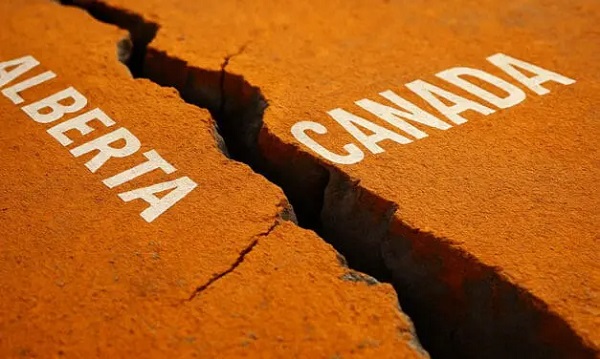
This article supplied by Troy Media.
 By Our View
By Our View
Canada faces a reckoning as Trump and Alberta disrupt long-held national assumptions
It may sound counterintuitive, but U.S. President Donald Trump and Alberta Premier Danielle Smith might be doing more to strengthen Canadian unity and prosperity than anyone in Ottawa.
Both are forcing a broken system long overdue for reform to face its flaws—Trump from the outside, Alberta from within. Trump’s revived protectionism is pushing Canada to confront its economic dependence on the United States, while Alberta’s bold demands are exposing the structural weaknesses of Canadian federalism. This unlikely convergence of pressure could lead to reform that strengthens the nation.
Trump’s renewed imposition of tariffs on Canadian imports, including a 25 per cent levy on most goods and a 10 per cent tariff on energy products, has
reignited trade tensions between the two nations. Trump has done this before: his 2018 tariffs on Canadian steel and aluminum sparked a brief but damaging trade war. His new measures are already disrupting industries reliant on crossborder supply chains, particularly in critical minerals.
However, there is a significant caveat: goods that comply with the United States-Mexico-Canada Agreement (USMCA)—the trade deal that
replaced NAFTA—are exempt from these tariffs. This exemption, initially set to expire on April 2, 2025, has been extended indefinitely, providing relief to industries that meet the agreement’s rules of origin. For example, auto parts manufactured in Canada that comply with USMCA standards are exempt from the newly announced duties.
Even with these carve-outs, the broader trade friction remains. This tension could be just what Canada needs. An unreliable U.S. trade partner may finally push Canadian policymakers to diversify markets, boost productivity and reduce our long-standing dependence on a single customer. The pain may be temporary, but the lessons could be permanent.
Meanwhile, Alberta is making it clear that business as usual will no longer be tolerated. Smith has issued a wide-ranging list of demands, including a repeal of Bill C-69—often called the “no more pipelines” bill by critics—which imposed stricter federal reviews on major energy projects; freedom to develop oil and gas resources without federal emissions caps; and the ability to opt out of industrial carbon taxes and net-zero vehicle mandates.
Some critics call Alberta’s stance reckless or anti-environment. But behind the rhetoric lies a growing frustration with a system that penalizes the very provinces driving Canada’s economy. Alberta isn’t seeking favours—it’s demanding fairness. If Ottawa fails to respond, the province is prepared to hold an independence referendum. That’s no longer an idle threat.
Canada’s deeper problems go well beyond Alberta. Interprovincial trade barriers fragment our economy. Energy infrastructure is blocked or stalled. And the equalization program sends billions to provinces that refuse to develop their own resources. Equalization is meant to ensure all provinces can deliver comparable public services, but the formula often penalizes growth-oriented provinces like Alberta while rewarding inaction. For decades, we’ve watched opportunity slip through our fingers, often by our own design.
External and internal forces are now creating the urgency we’ve lacked. Canadians are increasingly asking why internal trade isn’t as free as external
trade. Support for pipelines and energy independence is growing, even in provinces that previously opposed them. With global instability rising, secure
access to our own energy and markets is no longer optional—it’s essential.
It’s also hard to justify Quebec receiving $13 billion annually while banning fracking and refusing to develop its shale gas. The equalization formula discourages innovation, investment and self-reliance in recipient provinces. That’s not national solidarity—it’s economic dead weight.
This moment may feel tense, even dangerous. But real progress often begins with discomfort. Much like a labour negotiation or a market correction, shortterm conflict can lead to long-term renewal.
Canada has two choices: continue muddling along, or use this moment to reset and rebuild. That means cutting internal trade barriers. It means modernizing equalization. It means saying yes to energy infrastructure that strengthens national sovereignty. And above all, it means recognizing that the West’s prosperity is Canada’s prosperity.
Trump isn’t acting with Canada’s best interests in mind. Neither is Alberta trying to dismantle the country. But both are forcing us to look in the mirror. If we take this opportunity seriously, we may come out of it with a stronger, more selfreliant and united Canada.
Troy Media empowers Canadian community news outlets by providing independent, insightful analysis and commentary. Our mission is to support local media in helping Canadians stay informed and engaged by delivering reliable content that strengthens community connections and deepens understanding across the country.
-
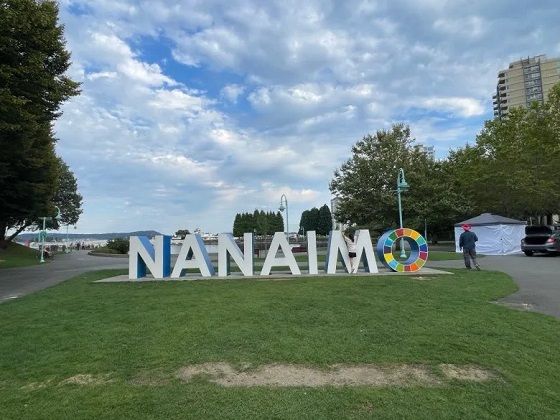
 Addictions6 hours ago
Addictions6 hours agoMan jailed for trafficking diverted safer supply drugs, sparking fresh debate over B.C. drug policies
-

 Alberta8 hours ago
Alberta8 hours agoHow Trump and Alberta might just save Canada
-
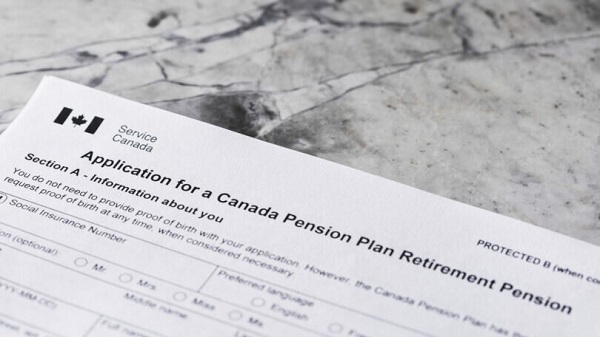
 Banks4 hours ago
Banks4 hours agoCanada Pension Plan becomes latest institution to drop carbon ‘net zero’ target
-

 Bruce Dowbiggin3 hours ago
Bruce Dowbiggin3 hours agoCaitlin Clark Has Been The Real Deal. So Her WNBA Rivals Hate Her
-

 Business7 hours ago
Business7 hours agoThe Liberals Finally Show Up to Work in 2025
-

 Alberta6 hours ago
Alberta6 hours agoJann Arden’s Rant Will Only Fuel Alberta’s Separation Fire
-
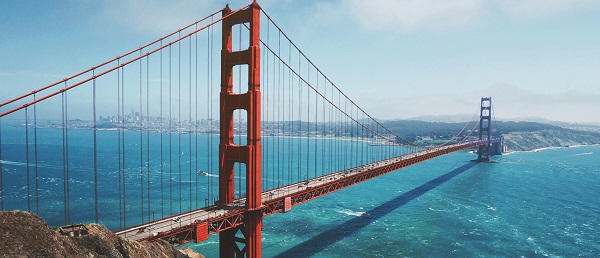
 Daily Caller5 hours ago
Daily Caller5 hours agoThere’s A Catch To California’s Rosy Population Stats
-
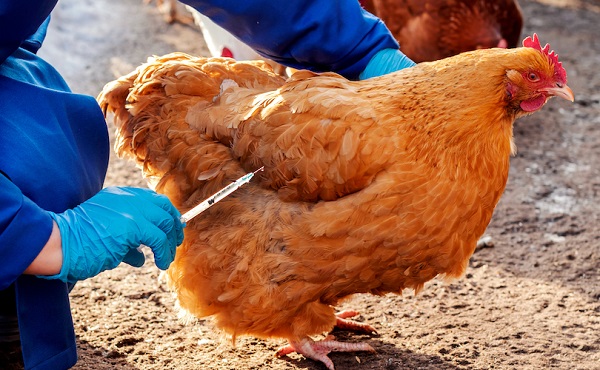
 Health2 days ago
Health2 days agoRFK Jr. cancels $700 million mRNA bird flu ‘vaccine’ contract with Moderna over safety concerns



